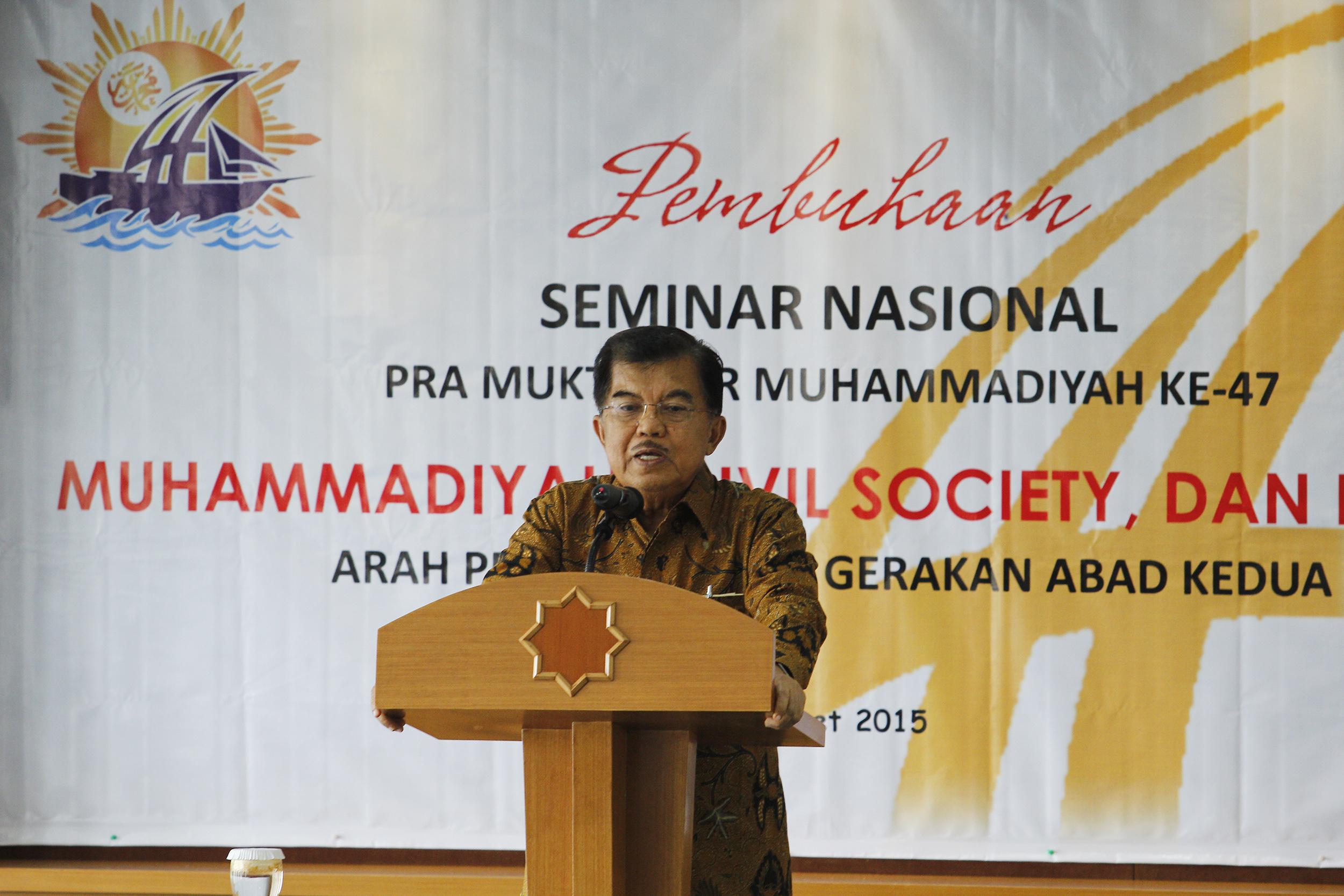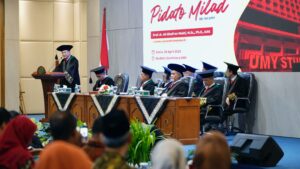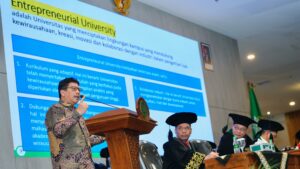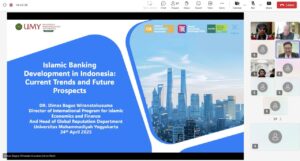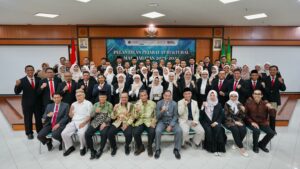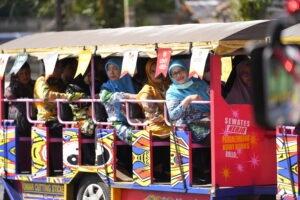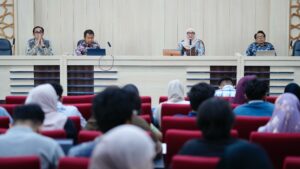It is very complex issues confronted by Indonesia and the citizens as economic, political, or social problems. However, Indonesia now focuses on political issues while the other two crucial issues are lack of attention and even tend to be ignored. As the result, Indonesia could not be truly developed country yet. Seeing this circumstance, one of the biggest Islamic organizations in Indonesia like Muhamadiyah ought to maintain looking at future challenges, particularly in economic and social issues.
The aforementioned statement was uttered by Vice President of Republic of Indonesia H.M. Jusuf Kalla as a keynote speaker of National Seminar opening of the 34th Pre Muktamar Muhammadiyah. The Muktamar would be conducted in Jusuf Kalla’s hometown, Makassar, on 3-7 August 2015. The seminar of Pre-Muktamar organized by Universitas Muhammadiyah Yogyakarta (UMY) took place at Mini Theater of Postgraduate Building-Jusuf Kalla School of Government (JKSG) UMY which was officially announced by him on Saturday morning (7/3).
According to Jusuf Kalla, there was something overlooked by this nation and society, and it turned them left behind. He stated that the ration of poor and rich people in Indonesia is not equal. “The ration between the rich and the poor is one compared to nine. From a hundred people, it is only ten people who are prosperous and categorized as the rich. It is not good comparison, and proves that there is something we forget,” he conveyed.
Therefore, Jusuf Kalla continued, Muhammadiyah should concern with its mission in aspects of mualamah (economic and social). He argues that the crux to discuss and concern is natural resources of Indonesia that the number of citizens is elevating but could not be a developed country yet. “Why is this nation not developed yet? One of the causes is that the citizens are consumers, not producers. Economic issues have not been noticed well. On contrast, Islam came to this nation through trade route since all missionaries are a merchant. In fact, K.H. Ahmad Dahlan, Muhammadiyah’s founder, was well-known as a merchant. It should be our introspection, and it obviously becomes our future challenge,” he said.
It was a mistake, based on Jusuf Kalla, if people assume that being a merchant or running economic field is taboo. He asserted that if somebody says that Prophet Muhammad dislikes markets, it is big fault. “Prophet Muhammad is a merchant, and so is his wife Siti Khadijah. Hence, it is wrong if a market is considered as a place disliked by Prophet Muhammad,” he told. Indeed, all movements of public economy and a state occur in markets, and they could assist to foster economy of nation and people.
In order to be able to take roles for develop Indonesia, Jusuf Kalla required Muhammadiyah to retain its power and get engaged in coping with issues faced by this nation. “In this country despite having a lot of problems as very dangerous corruption, we have to focus on strengths we have and what the threats are. An Islamic organization delivers not only the hereafter matters but also world issues or muamalah (economic and social). Thus, there would be equality between the world and the hereafter since it is necessary to develop a nation,” he uttered.
